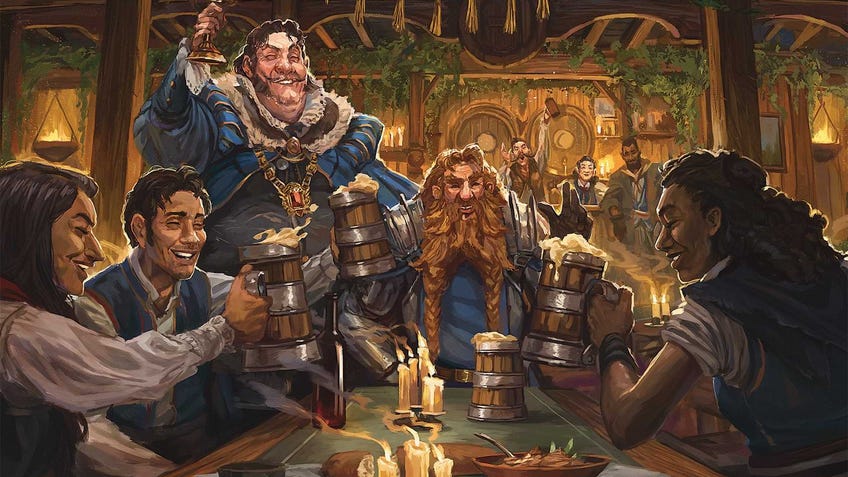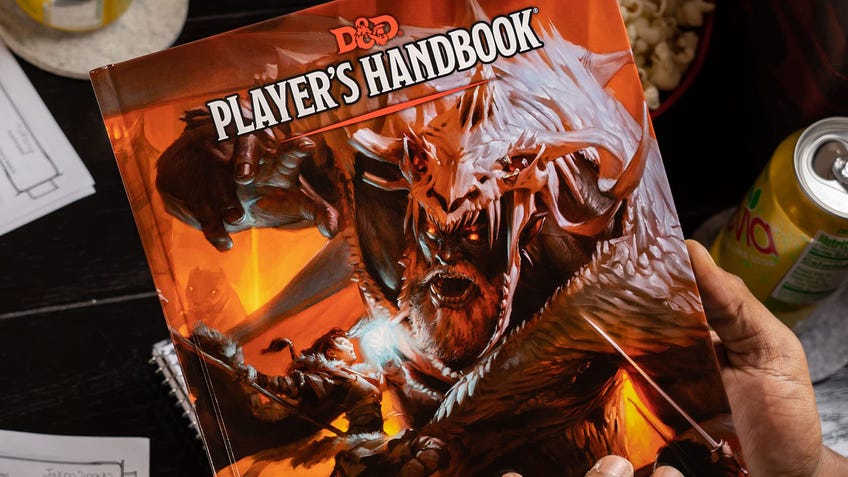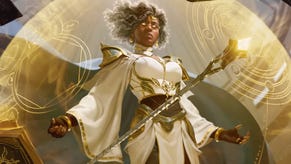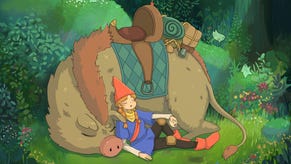Dungeons & Dragons wants its 2024 rulebooks to stay relevant and compatible for another decade.
D&D is a “living thing” that will continue to grow.
Nobody expected Dungeons & Dragons’ Fifth Edition rulebooks to last for ten years, not even the designers at Wizards of the Coast. The preeminent tabletop RPG will release a trio of new core books in 2024, and its two main shepherds - Chris Perkins and Jeremy Crawford - say the tomes should form D&D’s core experience for another decade, at least.
Speaking to Todd Kenrick in a YouTube video published on November 7th, Perkins and Crawford said the three books releasing next year are their chance to strengthen D&D’s foundations and “reflect the best state of the game in 2024”. The company has spent the years since 5E first released in 2014 learning plenty of design lessons that aren’t represented in the current books or are scattered across several incremental releases, such as Tasha’s Cauldron of Everything and Monsters of the Multiverse.
Wizards of the Coast is also keeping new players in mind, given the surprise success of Baldur's Gate 3 and the vast number of players who have entered the hobby in the past decade. “We want the gateway products to be among the best looking, easiest to read, most mechanically robust that we can so that it’s a great first experience for somebody coming into the game,” Perkins said.
Such a change would normally result in a new edition. That’s how D&D has historically handled significant internal paradigm shifts, but Wizards’ designers have said they want to avoid any conflation between 2024’s core rulebooks and a proposed retirement of 5E. Edition changes split the playerbase, confuse new players and (not incidentally) reduce the number of people purchasing new products.
Instead, D&D 2024 (RIP One D&D) will act as the central hub for everything Wizards of the Coast has produced during 5E’s decade-long tenure, while also acting as the connective tissue for everything the company produces afterwards. Crawford specifically mentions Curse of Strahd and Planescape: Adventures in the Multiverse alongside the spate of adventures and supplements in active development.
“We view the game as this living thing now that is continuing. Rather than this being a stop or pause, this is a renovation,” Crawford said. “Let’s make the foundation of the game even stronger so that we can have another decade - or however long it is after that.”

Players won’t need a “conversion guide” or other document to translate D&D 2014 books into D&D 2024’s revamped rules and mechanics. “You’ll be able to just get these books and keep playing,” Crawford assured. Parties will be able to support both versions of a character class and subclass at the same table with no problem, though the unspoken assumption is that dungeon masters will need to study up on both iterations and keep that in their head during play.
Apparently clocking in at nearly 1,000 combined pages, these three books are the largest versions of the Player’s Handbook, Dungeon Master's Guide and Monster Manual ever produced by Wizards of the Coast. Perkins noted that the team’s resources far outstrip what Wizards of the Coast could provide in 2012, and the product will reflect the company’s burgeoning financial success.
Players have been up to their eyeballs in preview material via D&D’s Unearthed Arcana playtests, but Wizards of the Coast has remained fairly circumspect with sample pages outside of classes, subclasses and a worrying Bastion system. Instead, we’ve heard plenty of vaunted promises and ambitious plans. These “uniter” books will simultaneously bridge the gap to the past and pave a road into the future. They will remain friendly to newcomers but also “mechanically robust”.
It’s difficult not to harbour a healthy amount of skepticism, despite Crawford’s claims that the design team can “change things over here without creating a shockwave over there”. And is the desired result - a living RPG brand that enshrines full backwards compatibility even as it races into a busy production schedule - worth the effort? Like it or not, D&D is dragging the last ten years - wins, losses and all - into its next decade.









